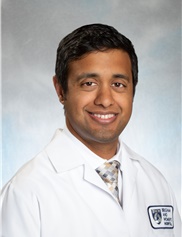Grants We Funded
Grant applicants for the 2023 cycle requested a total of nearly $4 million dollars. The PSF Study Section Subcommittees of Basic & Translational Research and Clinical Research evaluated nearly 140 grant applications on the following topics:
The PSF awarded research grants totaling over $1 million dollars to support nearly 30 plastic surgery research proposals.
ASPS/PSF leadership is committed to continuing to provide high levels of investigator-initiated research support to ensure that plastic surgeons have the needed research resources to be pioneers and innovators in advancing the practice of medicine.
Research Abstracts
Search The PSF database to have easy access to full-text grant abstracts from past PSF-funded research projects 2003 to present. All abstracts are the work of the Principal Investigators and were retrieved from their PSF grant applications. Several different filters may be applied to locate abstracts specific to a particular focus area or PSF funding mechanism.
Targeting pro-adipogenic BMP signaling in secondary lymphedema
Shailesh Agarwal MD
2023
Brigham and Women's Hospital, Inc.
National Endowment for Plastic Surgery Grant
Wounds / Scar, Wounds / Scar
Program Summary: Secondary lymphedema is morbid condition affecting over 5 million patients in the United States due to surgical excision of lymph nodes performed for cancer management. Patients experience limb swelling due to impaired drainage of lymphatic fluid which progresses to accumulation of subcutaneous adipose tissue and fibrosis leading to irreversible limb hypertrophy. As a result, patients are afflicted with limb heaviness, pain, open wounds, functional deficits, and infections requiring antibiotics and hospital admission. Therefore, strategies to address secondary lymphedema are critical to improving survivor quality-of-life. Strategies to treat the accumulation of adipose tissue in the affected limb are limited to surgical excision via liposuction; non-invasive pharmacologic interventions are absent. In a series of experiments presented as preliminary data here, we have found that inhibition of the bone morphogenetic protein (BMP) signaling pathway reduces adipose tissue accumulation. While studies have shown that BMP signaling is critical for adipocyte differentiation in obesity, little is known regarding its role in adipocyte progenitors present in secondary lymphedema. We hypothesize that BMP signaling plays a critical role in the differentiation of adipocyte progenitor cells to mature adipocytes. In Aim 1, we will examine how inhibition of BMP signaling modifies the fate of adipocyte progenitors in secondary lymphedema. We will perform experiments using both pharmacologic inhibition of BMP signaling and genetic loss of BMP signaling, focusing specifically on the effect on adipocyte progenitors using lineage-tracing mice. In Aim 2, we will develop a cell therapy which can produce and secrete a BMP inhibitor locally using an autonomous transcriptional circuit. Upon completion of this study, we expect to uncover the therapeutic potential of BMP inhibition for secondary lymphedema and to develop a cell therapy which is capable of long-term autonomous drug delivery for use in secondary lymphedema.
Impact Statement: Lymphedema is morbid condition characterized by limb swelling due to impaired drainage of lymphatic fluid. Over 5 million patients in the United States have secondary lymphedema caused by lymphadenectomy for cancer treatment. Despite optimal management, patients remain at risk for progression to features of chronic lymphedema including irreversible accumulation of adipose tissue and fibrosis. Pre-adipocytes capable of proliferation and collagen deposition mediate adipose tissue hyperplasia and fibrosis in other contexts. Here we examine how signaling through bone morphogenetic protein (BMP), a known modulator of adipogenesis in obesity, impacts pathologic adipogenesis in lymphedema. We further develop a cell therapy which is capable of autonomously secreting a BMP inhibitor.
 Dr. Shailesh Agarwal is an Assistant Professor of Surgery at Harvard Medical School and Associate Surgeon in the Division of Plastic Surgery at the Brigham and Women's Hospital. Dr. Agarwal completed his residency in plastic surgery at the University of Michigan from 2010-2018. During that time, he also completed a 2-year post-doctoral research fellowship studying pathologic wound healing with Dr. Benjamin Levi. Dr. Agarwal completed his microsurgical fellowship at the University of Chicago where he performed microsurgical reconstruction including lymphovenous bypass and vascularized lymph node transfer for patients with secondary lymphedema. At the Brigham and Women's Hospital, Dr. Agarwal performs both microsurgical and implant-based breast reconstruction, lymphedema surgery with vascularized lymph node transfer, LYMPHA for lymphedema prevention, and gender-affirming top and bottom surgery. His laboratory is focused on studying the underlying biology of lymphedema fibroadipose tissue deposition, and in developing adipocyte-based therapies for the local release of therapeutic biologic agents including peptide and microRNA.
Dr. Shailesh Agarwal is an Assistant Professor of Surgery at Harvard Medical School and Associate Surgeon in the Division of Plastic Surgery at the Brigham and Women's Hospital. Dr. Agarwal completed his residency in plastic surgery at the University of Michigan from 2010-2018. During that time, he also completed a 2-year post-doctoral research fellowship studying pathologic wound healing with Dr. Benjamin Levi. Dr. Agarwal completed his microsurgical fellowship at the University of Chicago where he performed microsurgical reconstruction including lymphovenous bypass and vascularized lymph node transfer for patients with secondary lymphedema. At the Brigham and Women's Hospital, Dr. Agarwal performs both microsurgical and implant-based breast reconstruction, lymphedema surgery with vascularized lymph node transfer, LYMPHA for lymphedema prevention, and gender-affirming top and bottom surgery. His laboratory is focused on studying the underlying biology of lymphedema fibroadipose tissue deposition, and in developing adipocyte-based therapies for the local release of therapeutic biologic agents including peptide and microRNA.